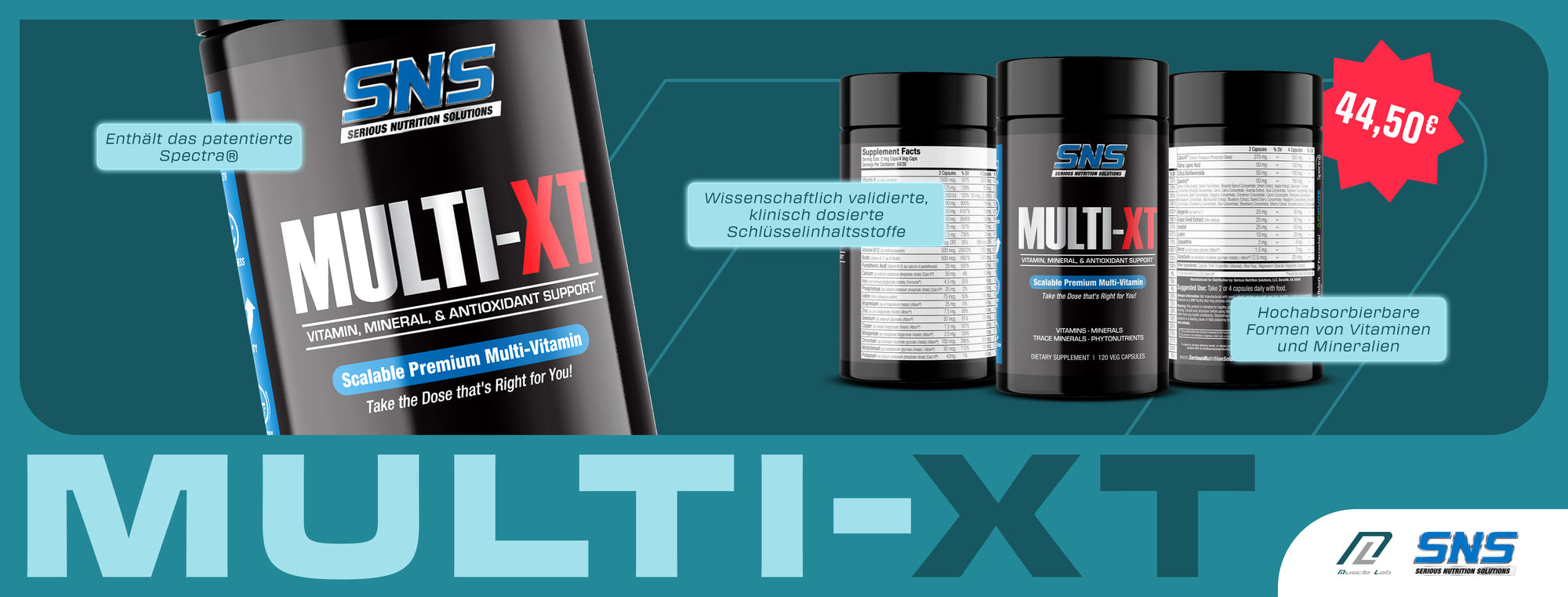BCAA – Branched-chain amino acids for muscle building
What are BCAAs?
BCAAs are essential amino acids that are needed to build body tissue (muscles, organs, etc.). Thus, an adequate supply of BCAAs helps to build and maintain muscle tissue. BCAAs, also called branched-chain amino acids, are made up of the three amino acids L-leucine, L-isoleucine, and L-valine. Strength training and bodybuilding place additional strain on the body, requiring significantly more BCAAs. Amino acid stores should be replenished before training to inhibit muscle breakdown. BCAAs taken as supplements are available in both capsule and powder form. Taking BCAAs directly after training increases insulin secretion. Insulin is a hormone that is involved in the absorption of amino acids into the muscles. Taking BCAAs with carbohydrates and proteins increases insulin secretion, which means nutrients are transported to the muscles even faster. The recommended daily dose is between 5 and 15 mg. To avoid unwanted side effects, this daily dose should not be exceeded. BCAAs are especially useful around training. Since many people take their whey shake after a workout, BCAAs would be a good option before training. However, supplementation during training can also be beneficial. BCAAs are three different amino acids. They are not broken down by the liver and are therefore absorbed into the blood much more quickly.
When should you take BCAA?
BCAAs are generally taken intra-workout, meaning during training. They can also be taken between meals or (for vegans) during a meal to improve your amino acid balance. However, BCAAs are intended as an intra-workout supplement if they make sense for someone.
What is the best way to take BCAAs?
BCAAs are available in powder, tablet, capsule, and ready-to-drink forms. The best and most practical option is powder, as it can be quickly mixed with water and in sufficient quantities. BCAA tablets and capsules also work, but sufficient amounts must be taken to achieve the physiological amount of L-leucine.
BCAAs - do they help with weight loss?
BCAAs have a false reputation for helping with weight loss. They don't actually do that directly. Rather, they can curb appetite somewhat, which can help with weight loss. However, they don't have a direct impact on calorie burning. Several other factors also play a role, such as active exercise, building more muscle (passive calorie consumption), and a low-calorie diet.
BCAA effect – what can you really expect?
BCAAs, meaning leucine, isoleucine, and valine, have a significant influence on muscle building, but not in the way the industry or market suggests. L-leucine, in particular, is the key amino acid for muscle protein synthesis. L-leucine activates mTor, which in turn triggers muscle building. Activating muscle protein synthesis promotes muscle building, provided all building blocks (amino acids, especially EAA) are available.
BCAAs are also known for their ability to inhibit cortisol, which is linked to the anabolic effect of muscle protein synthesis. In principle, based on current data, BCAAs offer an improvement in the amino acid balance for muscle building in a high-protein diet, and they may also provide some support for vegans.
BCAAs as muscle protection
"BCAAs serve to protect muscle during a diet" – this is the advertising slogan of many BCAA manufacturers. However, this effect is not as easy to understand and does not exist as the manufacturers claim. BCAAs are the three isolated amino acids leucine, isoleucine, and valine, which are actually found as components of a complete protein. Since the remaining essential amino acids (EAAs) are missing, the body cannot actively build muscle. Even in a diet, the building blocks needed to protect the body against muscle loss are missing. EAAs are naturally more effective here, but many professional bodybuilders still rely on BCAAs simply for their anti-catabolic, cortisol-inhibiting effect.
Criticism of BCAAs - do they really work?
Until a few years ago, BCAAs were the industry's flagship supplement. It was claimed that BCAAs had the greatest impact on muscle building, but this has been refuted by numerous studies. EAAs are actually capable of exerting a certain degree of muscle protection during training by minimizing cortisol and catabolic effects. BCAA powder is only suitable in certain circumstances, for example, if you consume meals low in leucine or with a poor amino acid balance, to supplement them with BCAA.




